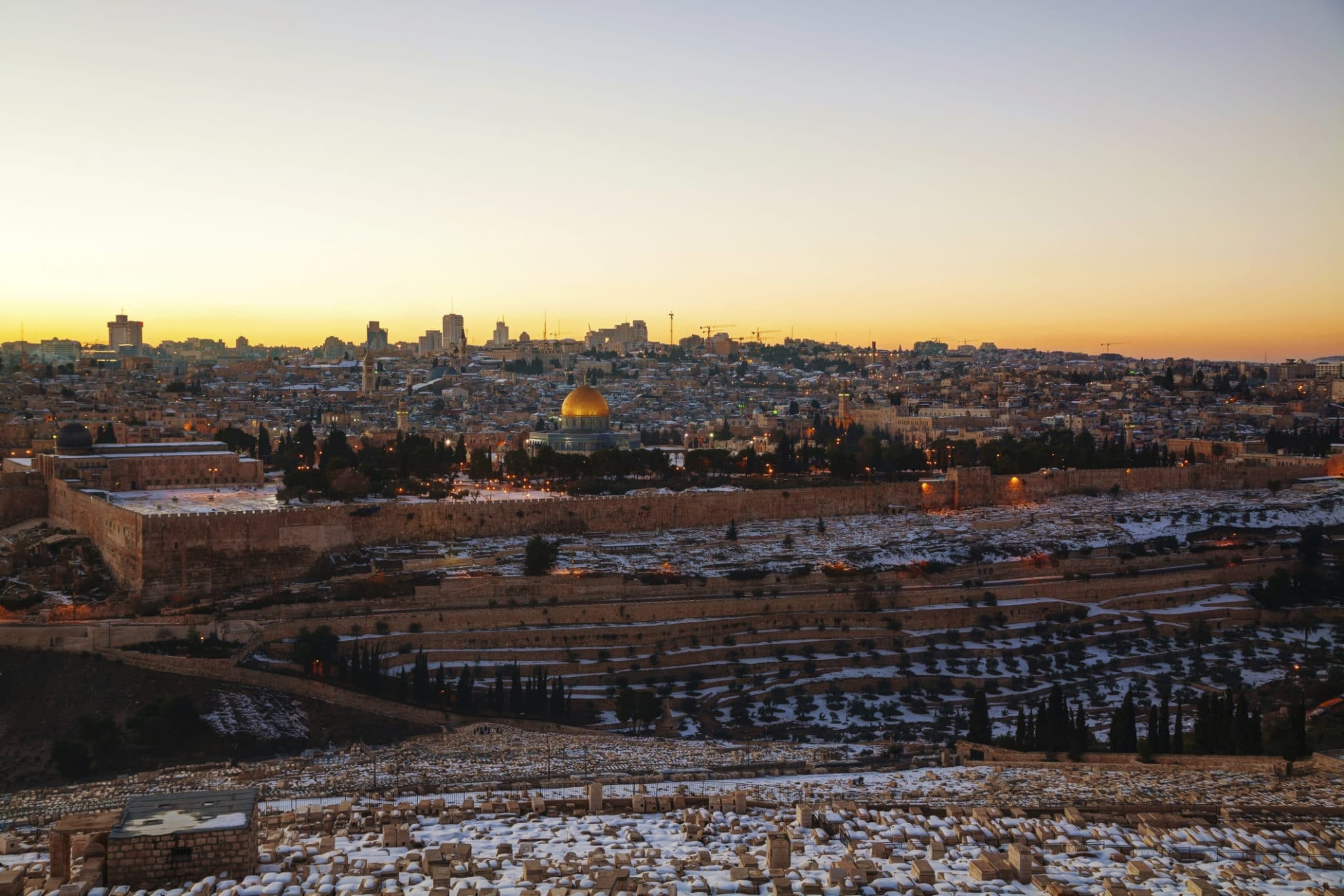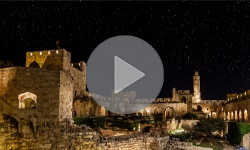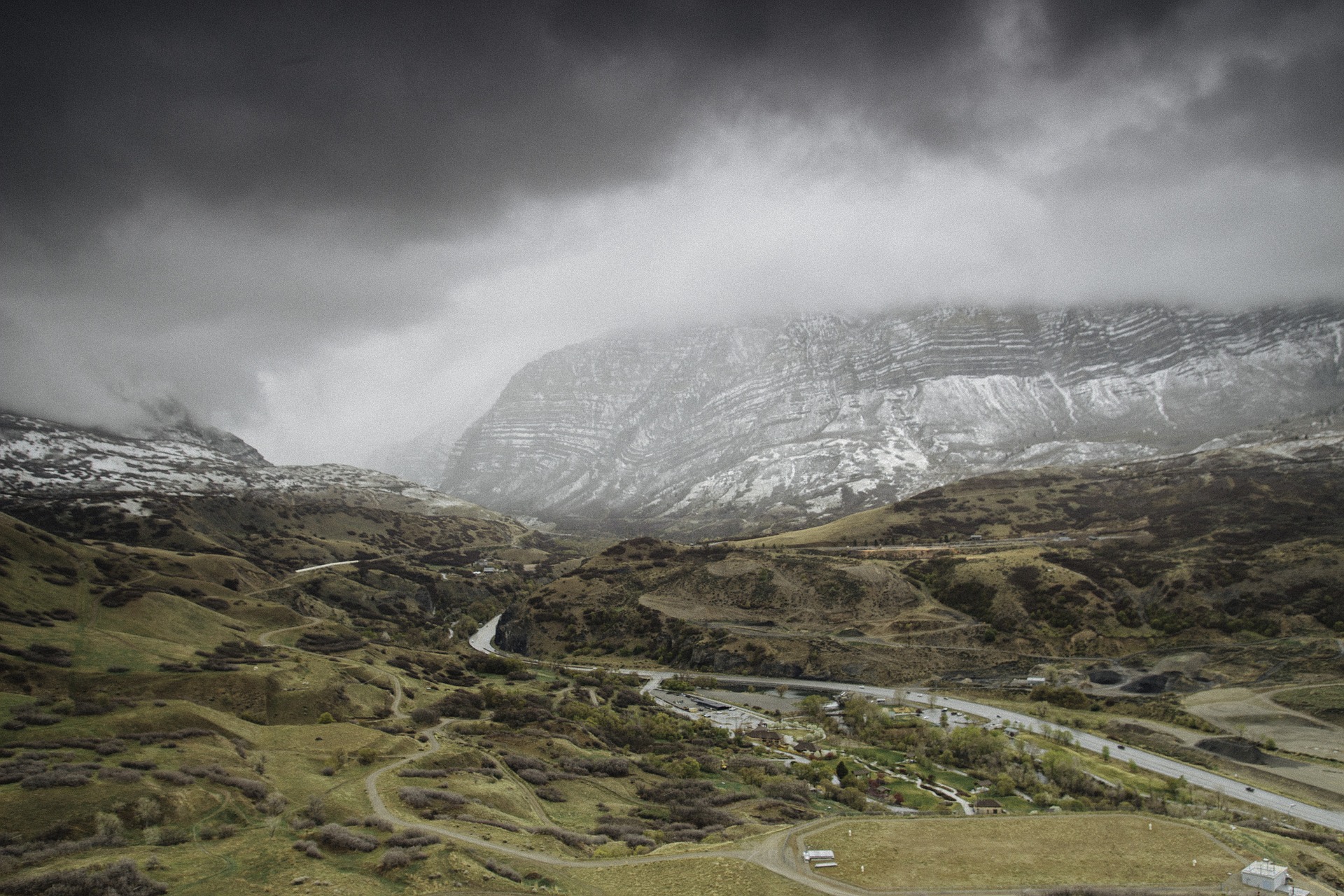In the history of a people, as in that of an individual life, things don’t always go as planned.
The original plan was to go like this: On the 15th of Nissan in the year 2448 from creation (1313 BCE), the people of Israel are taken out of Egypt under the leadership of Moses. After seven weeks of preparation and self-refinement, they receive the Torah, their mandate from G-d as His “nation of priests and Holy people,”[1] at Mount Sinai. From Sinai it’s an eleven-day journey to the Land of Canaan[2] – the land promised to Abraham, Isaac and Jacob as Israel’s eternal homeland-where Moses builds the Holy Temple to serve as the seat of the divine presence in the physical world, and the people of Israel implement the blueprint for life contained in the Torah, establishing the model society which serves as the keystone of a harmonious world community embodying the goodness and perfection of their Creator.
In actuality, the journey from Sinai to the Holy Land took not eleven days but forty years. The generation of the Exodus became “the generation of the desert” – only two of the 600,000 adult males who left Egypt lived to enter the Land of Canaan. The grand plan over which Moses was to preside was delayed, and still awaits completion. Moses’ disciple, Joshua, began the conquest of the Holy Land, but the task was only completed five centuries later by King David. David’s son, Solomon, built the Holy Temple in Jerusalem, but this was not the eternal edifice which Moses would have constructed; it was destroyed by the Babylonians in 3338 (423 BCE), rebuilt by Ezra in 3408 (353 BCE), and destroyed once more, by the Romans, in 3829 (69 CE). The people of Israel failed to fully live up to their role as a “light unto the nations”[3] and were exiled from their land. The perfect and harmonious world which we were to have achieved by entering the Land of Canaan under Moses’ leadership still awaits attainment by Moshiach.
What went wrong? The children of Israel were encamped at Kadesh, on the border of Canaan, in preparation to enter the land, when they approached Moses with the request:
“Let us send men before us, so that they shall search out the land for us and bring us back word as to which road we should take and into which cities we shall come.”[4]
Moses conveyed the people’s request to G-d, and G-d replied: “Act according to your own understanding.”[5] I’ve been telling you what to do long enough, G-d was saying. Now that you’re about to enter and settle the land, it’s time you did things your way, in accordance with your own understanding of how to best carry out My plan. If the people believe that sending spies is the way to go about conquering the land, then go ahead and send them.[6]
Moses sent twelve spies-one representative from each of the twelve tribes of Israel-to scout the land and report on its terrain and its inhabitants. Forty days later, on the eighth day of Av of the year 2449, the spies returned, bearing samples of the land’s huge and luscious fruit and the following assessment:
“We came to the land that you have sent us, and indeed, it flows with milk and honey; this is its fruit. However, the people who dwell in the land are strong, and the cities are fortified and very great; we also saw giants there. The Amalekites dwell in the Negev, the Hittites, the Jebusites and the Emorites in the hills, and the Canaanites at the sea and on the banks of the Jordan…. We cannot go up against these people, for they are mightier than we….[7]
Their report caused the nation to lose faith in their ability to conquer the Holy Land, despite G-d’s promises. Indeed, the commentaries note that the Hebrew word mimenu, “than we,” also translates as “than he”; the spies were, in effect, saying that “they are mightier than He” – that the conquest of the Holy Land is beyond the capacity of the Almighty Himself![8] All night the nation wept and bemoaned their fate, crying to Moses: “Why is G-d bringing us to this land to fall by the sword, and for our wives and children to fall into captivity?”[9]
Thus it came to pass that on the Ninth of Av – a day which was to bode many tragedies for the people of Israel[10] – G-d informed Moses that the generation that received the Torah at Sinai was not fit to enter the Land of Canaan. He decreed that they shall live out their lives as wanderers in the desert until a new generation can take up the challenge of conquering the land of Canaan and developing it as a “Holy Land” – as the focus of G-d’s presence in the material world.
What Happened?
The spies dispatched by Moses were no ordinary individuals: “They were all men of distinction, leaders of the children of Israel.”[11] Furthermore, in all of history, it would be difficult to find a generation whose lives were more saturated with miracles than theirs. Egypt, the most powerful nation on earth at the time, was forced to free them from slavery when “the mighty hand” of G-d inflicted ten supernatural plagues. When Pharaoh’s armies pursued them, the sea split to let them pass and then drowned their pursuers. In the desert, miracles were the stuff of their daily lives: manna from heaven was their daily bread, “Miriam’s well” (a miraculous stone which traveled along with the Israelite camp) provided them with water, and “clouds of glory” sheltered them from the desert heat and cold, kept them clothed and shod, destroyed the snakes and scorpions in their path, and flattened the terrain before them to ease their way.
For these people to doubt G-d’s ability to conquer the “mighty inhabitants” of Canaan seems nothing less than ludicrous. Yet these were the people whose leaders said, “We cannot go up against these people, for they are mightier than we” and even He. What happened? Where did they go wrong?
Desert Idyll
The daily miracles experienced by the generation of the Exodus did more than provide them with sustenance and protection – they shielded them from any and all involvement with the material world. For the first generation of our existence as a people, we lived a wholly spiritual life, free of all material concerns; the very food which nourished us was “bread from heaven.”[12] Indeed, our sages have said that, “The Torah could have been given only to the eaters of the manna.”[13] To properly receive and assimilate the divine wisdom, one must be utterly free of the responsibilities and frustrations of physical life-something that is possible only in the kind of environment which our ancestors enjoyed during their sojourn in the Sinai Desert.
This is why the spies and their generation were loath to enter the land. Becoming a people with a land would entail plowing, sowing and harvesting; it would mean engaging in commerce and levying taxes; it would require a bureaucracy to run the land and an army to defend it. Their underlying problem with the land was, as the spies expressed it, that “it is a land that consumes its inhabitants”[14] – it consumes one’s time and energy with its corporeal demands and infringes on one’s capacity to study the divine wisdom of Torah and meditate upon its truths. They were unwilling to relinquish their spiritual utopia for the entanglements of an earth-bound life.
This also explains the spies’ argument that “We cannot go up against these people, for they are mightier than we,” notwithstanding the tremendous miracles which G-d had performed and was performing for them. We cannot have it both ways, argued the spies. Either we are to be a spiritual people engaged exclusively in spiritual pursuits and sustained by supernatural means; or else we are to enter the natural world of the farmer, merchant and soldier and become subject to its laws. And under these laws-which decree that the numerous, mighty and well – fortified will defeat the few and the weak – there is no way we can defeat the inhabitants of Canaan.
They even went so far as to extend this line of reasoning to the Almighty Himself. If G-d wishes for us to live a spiritual life, then, certainly, He can sustain us with miracles. But if His desire is that we abandon our supra-natural existence to enter the land and assume a natural life, then He Himself has decreed that natural law will govern our fate. In that case, He cannot empower us to miraculously conquer the land, since were He to do so, this would defeat the entire purpose of entering the “land.” So “they are mightier than He” – even G-d cannot help us, if He Himself has chosen to transform us into a material people.
The Generation Gap
What the spies and their generation failed to understand is that the entire point of entering the Holy Land is to sanctify the material aspects of life. This is the essence of the divine objective of creation and the mission entrusted to us at Sinai: to build “a dwelling for G-d in the lowly realms”[15]-to imbue our plowing, sowing and commerce with a holy and G-dly purpose. In charging us with this mission, the Creator empowered us to indeed “have it both ways”: to create a land that is holy, a nature that is miraculous, a reality that is not bound by its own defining parameters for it serves a purpose greater than itself.
Achieving this aim required a two-phased program: an initial state of unmitigated holiness and spirituality, followed by “entrance into the land” and assumption of its material labors. For to sanctify the land, one requires the vision and guidance of the divine truth of truths – which can be attained only by a nation of “manna eaters.” So first there had to be that period of utter isolation from the material world. However, this phase of our national existence was not an end in itself, but the way in which to acquire the tools and resources to miraculize the natural and elevate the everyday.
If the “generation of the desert” would have themselves been capable of making the transition into a people of the land, the transformation of the material world into a home for G-d would have been fully and perfectly achieved in that very generation. If they would have believed in their divinely granted capacity to “have it both ways,” their sanctification of the land would have combined their ultimate apprehension of the divine truth with a full involvement with the natural reality.
But one of the most basic rules of creation is that if the achievements of man are to be meaningful and significant, they must be his own – the product of an uncompelled choice to exercise his divinely granted potentials. And free choice means license to fail as well as to succeed; it means the capacity for blunder as well as for achievement. When G-d told Moses to proceed with the conquest of the land “according to your own understanding,” He opened the possibility for greater and more meaningful achievement, but also for error on the part of His “partners in creation,”[16] and delays and regressions in the fulfillment of His master plan.
The generation of the desert failed to actualize the unique opportunity which presented itself at that particular juncture of our history: for there to be a single generation which straddled both worlds, a single generation which first inhabited a world of utter spirituality and then proceeded to apply it to a life on the land. Instead, they fell prey to the tendency of man to “compartmentalize” his life, to label his experiences and attainments as “material,” “spiritual,” “sacred,” “mundane,” “natural” and “supernatural,” thereby delegating and confining them to their respective domains. So it was left to their children to embark on the longer, more difficult journey, a journey only now reaching its culmination: to bridge the formidable “generation gap” which separates us from our manna-eating ancestors and apply the pristine truth they received in the desert to our own earth-bound lives.[17]
On a Personal Note
In our own lives, we each have a “generation of the desert” and a “generation which enters the land.” Our childhood and youth are a spiritual and miraculous time: our needs are provided to us “from above” without effort or worry on our part; the business of running the world is blessedly none of our concern. Such a hermitic existence, while contrary to the ultimate purpose of our lives, is the optimal environment for the acquisition of the beliefs, values and knowledge which will guide and inspire our development of the world when we subsequently “enter the land” in our adult years.
The same is true of each particular day of life: we begin our day with a sacrosanct hour of prayer and Torah-study before crossing over into the workday and embarking on the development and sanctification of the material world.
Here, too, exists the danger of succumbing to a “generation gap” between one’s “Sinai Desert” and “Land of Israel,” of adopting the “either/or” mentality of the spies. Therein lies the eternal lesson of the Torah’s account of the incident of the spies: do not allow the wisdom, sensitivity and inspiration of your youth to remain an isolated period in your life. Do not allow your moments of attachment to G-d each morning to remain a “miracle” with no bearing on the natural course of your day. Cross into the land, but do not leave your spiritual “childhood” behind. Remember that the purpose of it all is to make “holy” a quality of “land.”
Based on an address by the Rebbe, Shabbat Shelach 5722 (June 30 1962)[18]
Adapted from the teachings of the Rebbe by Yanki Tauber
[1] Exodus 19:6.
[2] Deuteronomy 1:2; in actuality, the Israelites made this journey in just three days and were on the brink of entering the land when the episode of the spies intervened (Rashi on verse).
[3] Isaiah 42:6.
[4] Deuteronomy 1:22.
[5] Numbers 13:2, as per Rashi on verse.
[6] See Free Agent , Week In Review vol. IX, no. 38.
[8] Midrash Rabbah, cited by Rashi on verse.
[9] Numbers 14:1-3.
[10] Including the destruction of both the First and Second Temples (see Talmud, Taanit 29a).
[11] Numbers 13:3
[12] Exodus 16:4.
[13] Midrash Mechilta, Beshalach 17.
[14] Numbers 13:32.
[15] Midrash Tanchuma, Nasso 16.
[16] Talmud, Shabbat 10a; et al.
[17] Ultimately, however, it is G-d’s desire that His master plan should go awry, creating the opportunity for the painful yet immensely profitable path of teshuvah, whose rewards cannot be anticipated, or even allowed for, by any pre-ordained plan-see G-d’s Business, WIR, vol. X, no. 4.
[18] Likkutei Sichot, vol. IV, pp. 1041-1047.







